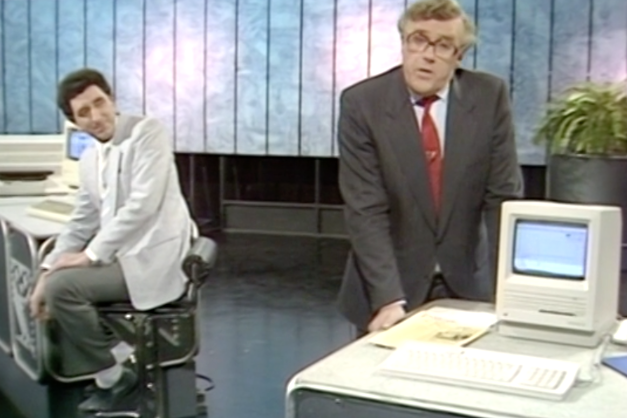I’m serious: maybe no writing or drama or art is actually any good. Maybe it’s just that some of it is more shiny, some of it is somehow more reflective and it catches the eye for a brief while.
The one book I simply will never dare re-read, for example, is Sylvia Plath’s The Bell Jar. Because I read it when I was exactly at the right point in my teens to find it a tumultuous bellow of a book and some of the bruises it gave me have yet to disappear. Now that I’ve read it once and moreover am somewhat older than I was, though, I fear that it may be feel blunted if I read it again. I want to keep these bruises.
Not long ago I did re-read Isaac Asimov’s The End of Eternity and, god in heaven, he’s a schoolboy. Yet so was I when I first read it and perhaps consequently I did not notice characters, attitudes, situations and writing that now makes me wonder if the book is a joke. All I saw back then was the plot which, to be fair, still seems replete with deeply imaginative ideas.
So I definitely had to be a schoolboy in order to think Asimov is good. I think I might have to be a teenager to truly appreciate Plath again. In which case, I and who I am, how old I am, perhaps even where I am, makes the difference to me between a book being good or bad. Your mileage will vary but the same factors apply: I don’t think you can enjoy a Young Adult novel as much as if you were a Young Adult, for instance.
This week, a colleague told me that she doesn’t like Doctor Who. She wanted me, I think, to make a pitch for why I think it’s good but instead I just told her that it isn’t compulsory.
I gave her this example. Mindful of how there’s just been some football tournament thing, I said to her that she or anyone might well be able to tell me that this game or that is good. You can argue about the beauty of the beautiful game, you can tell me how you’ve held your breath in moments of action that are greater than any theatre could ever hope to achieve.
And so what? I’ll never know because I’ll never watch because it’s football.
I have a few mantras in life. One is that it’s better to be crew than passenger. Another is that the show comes first. But the third is my unstoppable certainty that everything, absolutely everything is interesting. Except football.
Yet if you do that telling me it’s a pinnacle of drama, I might want to take you out to the theatre a bit more but it won’t occur to me to doubt you.
So that means that the quality of football doesn’t matter. It can be wonderful or it can be dreadful, it’s all still rubbish to me.
If you’re thinking that says more about me than it does football, I completely agree and I think that’s actually the point.
For if the quality or not of a sport has no bearing on whether I’ll like it, so surely the reverse is true. Things I do think are good really just happen to be things I like.
As writers and creators, maybe we shouldn’t bother striving to be good, then. We should just write things that include things people like. A bit with a dog, for instance.
Except, as a writer, I long to say to you that all of this is utter bollocks. I yearn to say definitively that if you do good work it will reach people. Whether or not they happen to be the right age or in the right demographic, good work will reach them.
And I think I can make that argument.
That mention of a bit with a dog – I realise only after having typed it – is a quote from the 1999 film Shakespeare in Love. And thinking of Shakey makes me think of this. That fella wrote Hamlet four hundred years ago and I’ll bet it was a hit with the teenagers of the day but it has lasted.It can’t connect with anything I do. It doesn’t depend on my being a Danish prince. Nothing Shakespeare could’ve put in as a crowd pleaser can work with me four centuries later.
Yet Hammy is one of my favourite plays.
Then the same should be true with Jane Austen. She wrote 200 years ago in a society I can’t imagine, in a world I cannot recognise. But her writing in the 18th and 19th Centuries has made me laugh aloud here in the 21st.
She’s also made me wince at her sometimes deft cruelty in describing characters such that one sentence brings them to vivid life.
That’s what I think works and lasts and connects. The ability of truly fine writers to see beyond the present-day trappings and dive so deeply into people that they also dive into us.


 Then for some other reason I never knew, Sky delayed airing the movie. So those disks lay there on a desk for a week or more until one night when I was coming home to Birmingham by coach and had nothing to watch. You’re thinking I took those disks and loved them, but you’d be wrong.
Then for some other reason I never knew, Sky delayed airing the movie. So those disks lay there on a desk for a week or more until one night when I was coming home to Birmingham by coach and had nothing to watch. You’re thinking I took those disks and loved them, but you’d be wrong. There’s a story that the first scene of Queer as Folk was coming across as a bit serious, that its tone was setting up the show to not feel the way it should. So an extra scene was written, shot and inserted at the start of the episode. It’s Craig Kelly as Vince talking to camera about one night out on Manchester’s gay scene and concludes with a description of a man who “has every episode of Juliet Bravo on tape”.
There’s a story that the first scene of Queer as Folk was coming across as a bit serious, that its tone was setting up the show to not feel the way it should. So an extra scene was written, shot and inserted at the start of the episode. It’s Craig Kelly as Vince talking to camera about one night out on Manchester’s gay scene and concludes with a description of a man who “has every episode of Juliet Bravo on tape”.

